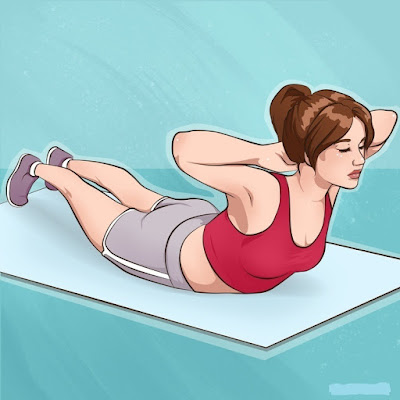Try Rubbing These Two Oils On Your Gums and Teeth And You Will Never Need To See A Dentist Again

As you probably know, the therapeutic effects of essential oils are far more than aromatic. In fact, many essential oils offer extraordinary healing properties.
A lot of people have used a few essential oils for oral health for years. Also, clinical studies have confirmed their efficacy and safety.
In addition, they are safe, natural and effective remedies that can improve the health of gums and teeth.
They have powerful antiseptic and antibacterial properties that can destroy harmful mouth bacteria and promote oral flora balance.
The Journal of International Oral Health published a study entitled “Possible Use of Essential Oils in Dentistry”.
The results showed that the antimicrobial properties of essential oils are effective against subgingival periopathogens.
What’s more, essential oil rinses are as effective as some popular antiseptic formulas, such as stannous fluoride or amine fluoride, when it comes to inhibiting plaque.
However, the long-term use of chlorhexidine rinse can lead to staining of teeth. On the other hand, essential oils do not cause any adverse side-effects.
As a result of this, they can be used as a fantastic natural replacement for chlorhexidine rinse.
These Types of Essential Oils Can Significantly Improve Oral Health:
As you probably know, the therapeutic effects of essential oils are far more than aromatic. In fact, many essential oils offer extraordinary healing properties.
A lot of people have used a few essential oils for oral health for years. Also, clinical studies have confirmed their efficacy and safety.
In addition, they are safe, natural and effective remedies that can improve the health of gums and teeth.
They have powerful antiseptic and antibacterial properties that can destroy harmful mouth bacteria and promote oral flora balance.
The Journal of International Oral Health published a study entitled “Possible Use of Essential Oils in Dentistry”.
The results showed that the antimicrobial properties of essential oils are effective against subgingival periopathogens.
What’s more, essential oil rinses are as effective as some popular antiseptic formulas, such as stannous fluoride or amine fluoride, when it comes to inhibiting plaque.
However, the long-term use of chlorhexidine rinse can lead to staining of teeth. On the other hand, essential oils do not cause any adverse side-effects. As a result of this, they can be used as a fantastic natural replacement for chlorhexidine rinse.
These Types of Essential Oils Can Significantly Improve Oral Health:
– Tea Tree Essential Oil
This type of essential oil can help in the treatment of fungal, yeast, and bacterial infections as a result of its potent antibacterial, antifungal, and antiprotozoal abilities.
Additionally, it can also help in cases of viral infections such as cold sores thanks to its antiviral activity.
That’s not all, tea tree essential oil can also alleviate denture stomatitis and gingivitis symptoms.
The researchers at the Institute of Preventive Dentistry and Oral Microbiology at the University of Basel in Switzerland carried out a study suggesting that the oil can inhibit bacterial colonies that cause halitosis, thus eliminating bad breath.
– Clove Essential Oil
The compound known as eugenol present in the oil has been used in dentistry for years due to its marvellous anesthetic and analgesic properties.
Also, it has incredible antioxidant, anti-inflammatory and local anesthetic properties.
Homemade Essential Oil Rinse
Prepare a mixture of 2 drops each of high-quality tea tree oil and clove oil and some carrier oil such as coconut oil.
Next, rub it on your gums or use it to brush your teeth to prevent bad breath, gingivitis, cavities, and tooth decay. For best result, repeat the same procedure twice a day.
loading...


